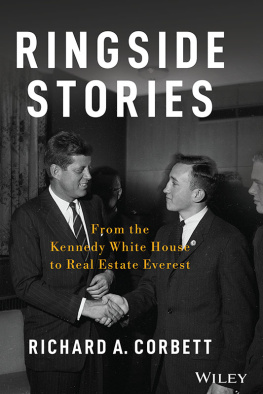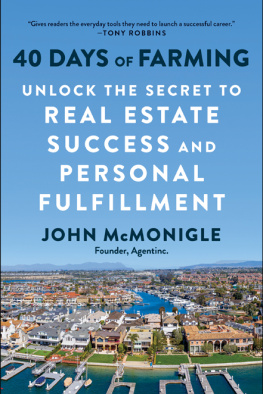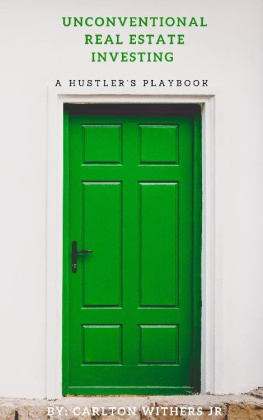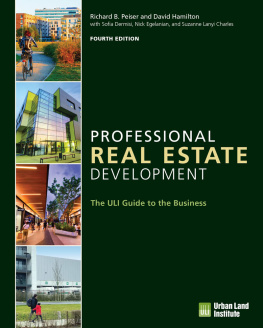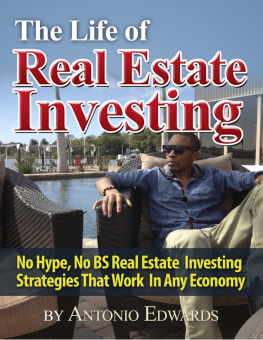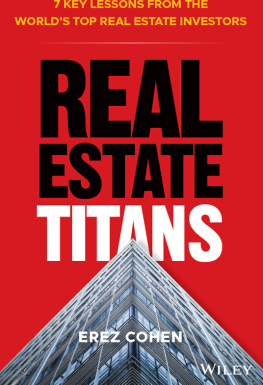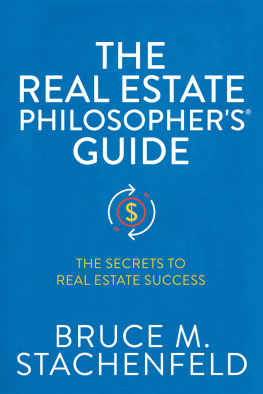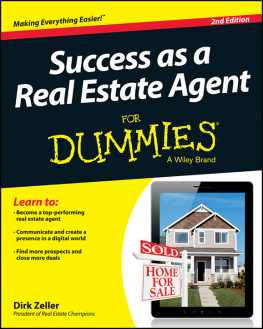
Ringside Stories
FROM THE KENNEDY WHITE HOUSE
TO REAL ESTATE EVEREST
Richard A. Corbett
Cover design: Paul McCarthy
Cover image: Walter Daly, Jr.
Copyright 2020 by Richard A. Corbett. All rights reserved.
Published by John Wiley & Sons, Inc., Hoboken, New Jersey.
Published simultaneously in Canada.
No part of this publication may be reproduced, stored in a retrieval system, or transmitted in any form or by any means, electronic, mechanical, photocopying, recording, scanning, or otherwise, except as permitted under Section 107 or 108 of the 1976 United States Copyright Act, without either the prior written permission of the Publisher, or authorization through payment of the appropriate per-copy fee to the Copyright Clearance Center, Inc., 222 Rosewood Drive, Danvers, MA 01923, (978) 750-8400, fax (978) 646-8600, or on the Web at www.copyright.com. Requests to the Publisher for permission should be addressed to the Permissions Department, John Wiley & Sons, Inc., 111 River Street, Hoboken, NJ 07030, (201) 748-6011, fax (201) 748-6008, or online at www.wiley.com/go/permissions.
Limit of Liability/Disclaimer of Warranty: While the publisher and author have used their best efforts in preparing this book, they make no representations or warranties with respect to the accuracy or completeness of the contents of this book and specifically disclaim any implied warranties of merchantability or fitness for a particular purpose. No warranty may be created or extended by sales representatives or written sales materials. The advice and strategies contained herein may not be suitable for your situation. You should consult with a professional where appropriate. Neither the publisher nor author shall be liable for any loss of profit or any other commercial damages, including but not limited to special, incidental, consequential, or other damages.
For general information on our other products and services or for technical support, please contact our Customer Care Department within the United States at (800) 762-2974, outside the United States at (317) 572-3993, or fax (317) 572-4002.
Wiley publishes in a variety of print and electronic formats and by print-on-demand. Some material included with standard print versions of this book may not be included in e-books or in print-on-demand. If this book refers to media such as a CD or DVD that is not included in the version you purchased, you may download this material at http://booksupport.wiley.com. For more information about Wiley products, visit www.wiley.com.
Library of Congress Cataloging-in-Publication Data:
ISBN: 978-1-118-89872-7 (cloth)
ISBN: 978-1-118-89881-9 (ePDF)
ISBN: 978-1-118-89903-8 (ePub)
I wrote this book for my familymy wife Cornelia, our children, and grandchildenHeather, married to Bill Amenta, living in Brooklyn
with grandchildren Lukas and Eloise; Cori (now Lamara) married to Timothy Tillman, living in Santa Barbara; Alyda, married to Stephen Porter, living in Austin; and Rick, married to Jennie, living in Tampa
with grandchildren Will, Ben, and Emily. I am so proud of all of them
and love those grandkids!
Acknowledgments
This book is my storybut it was made possible because of the people who helped put the pieces together, aggressively encouraged me, and followed up with the technical realities of producing a publishable manuscript. During the production of this book, Cornelia, my wife, played her usual, critical role, getting me to fact check and cut out the fluff. Local Tampa journalist Paul Guzzo assembled and transcribed recorded interviews to craft the draft document. My friend Jay Wolfson edited and finalized the manuscript and coordinated production with editorial and production staff at Wiley, my publisher. Jay Hughes provided constant encouragement and substantive suggestions. The recollections of Joe Hakim, past Kennedy Office CEO, helped to clarify my memories. Julie Strauss Bettinger offered import guidance on style. My office staff made sure that the background and process components functioned: Jennifer Kent kept all of the people and communications coordinated; Melanie Craig knew where to find all of the critical source documents; and Christy Martineau provided all of the backup and cover.
My mother did not live long enough to share most of my life experiences. My father was a role model and a compelling, often involved force behind many of my successes.
Prologue
On June 6, 1968, when I was half-naked, sitting alone next to Bobby Kennedys murdered body in the Los Angeles morgue, I could not have imagined that 50 years later I would be fabulously lucky in life and successful beyond any measure. I overcame the gut punch of Bobbys death, along with subsequent challenges through life lessons and skills learned from boxing, scouting, the outdoors, and complex parents. These skills prepared me for the deep immersion in the political and financial dealings of the Kennedy family and the hard-knock world of high-stakes real estate deals.
Friends told me I should capture my story to share with my children, grandchildren, and friends. So I started writing, recording, and remembering. And as I did, I recalled things I had not thought about for decades: boxing matches and punches in the face; Nixons remoteness versus John F. Kennedys intimate charisma; business deals gone haywire; and crazy, sometimes foolish, and often scary events that, taken all together, brought me the gifts of a loving and dynamic wife, happy and engaged children and grandchildren, and true friends. The story of my success includes bumps, bruises, and epiphanies from the lessons I have learned.
The metaphor of the boxing ring has been an active, almost daily part of my life. It is how I often viewed and dealt with the equally brutal ring of business and real estate within and outside the Kennedy familys financial world. The outdoors and scouting were both foundational growth experiences and touchstones of sanity, needed while growing up in the home of an alcoholic mother and a driven and successful political father. The horror of Bobby Kennedys murder, which I witnessed firsthand, has been my benchmark for a dramatic life transition and a continuing connection to the brilliant and tumultuous financial successes of the Kennedy family. These experiences led to the struggles and success of my real estate business, and to the enjoyment of my family life. I share the bona fide dramaand also the lessons learned.
CHAPTER 1
Robert Kennedy Is Buried in My Clothes
In 1968, I was a young, hotshot political wannabe. It was my good fortune to be close to one of the most prominent families in American politicsthe Kennedys. They were my friends and mentors. Beginning in the summer of 1960, following my graduation from college, I worked as a runner on the floor at the Democratic National Convention that gave John F. Kennedy the Democratic presidential nomination; I later became a member of JFKs presidential transition team and staff. I also served as a member of Ted Kennedys campaign team, and as assistant to the manager of the familys business office in New York City. By the time I was 30, Id been named national treasurer for Robert Kennedys 1968 presidential election campaign and envisioned a long political career in the White House once Bobby became president. The world was mine for the taking.
Or so I thought.
On June 4, 1968, I was in Los Angeles, California, with Bobby and the entire campaign team. The primary polls had been closed for four hours. It had been a stressful few days gearing up for Californias presidential primary. I was supposed to be in charge of managing the money for a campaign that was financially out of control. Wed blown our budget in every primary prior to Californias, and the campaign team was still spending recklessly. I tried numerous times to explain that campaign donors expected us to be more responsible and that spending family money on the campaign was borderline illegal. But the higher-upsBobby includedtold me to keep quiet. The only thing that mattered, they said, was winning. And the campaign would break the bank if that was what it took. By the time we made it to California, the free spendingnot to mention the verbal abusewas beginning to weigh on me. But the California polls, so critical to national success, looked good. That helped the campaign as well as my ego.
Next page
